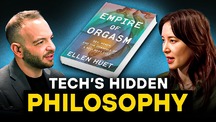YouTube has unveiled two new AI-powered music creation tools — Dream Track and Music AI — to help creators make engaging short videos that compete better with rivals like TikTok. The new tools allow users to generate original songs and instrumentals using artificial intelligence.
According to a recent Wired report, Dream Track lets creators generate 30-second songs by simply entering a text prompt such as “a ballad about unrequited love” and selecting one of seven popular artists, like Charlie Puth or Demi Lovato, that the AI will mimic. The tool was built using Lyria, an AI system developed by Google’s DeepMind. It aims to allow creators without musical skills to quickly add high-quality, customized songs to their short videos.
Meanwhile, Music AI provides more advanced generative capabilities to remix songs, convert genres, create instrumental backing tracks, and turn text like “melancholy” into music. Google says this system allows transformations like turning a hip-hop track into country music. The goal is to augment human creativity by making musical creation and experimentation faster and easier.
The launch of these AI music tools appears strategically targeted at competing with TikTok, where music and creative effects have fueled growth. TikTok allows easy song remixing and inspiration for short videos, while YouTube wants to provide creators with next-level tools to keep viewers hooked.
However, generative AI has raised concerns about copyright, ownership and compensation. To address this, YouTube plans to watermark AI-generated music and, in a novel move, share ad revenue with artists whose work inspired the AI models. The company is testing how to adequately compensate artists whose styles, a key component of originality, are mimicked by the AI systems.
Seven artists have partnered with YouTube to provide their musical styles for Dream Track. They hope to embrace AI as a new creative avenue rather than see it as a threat — but challenges remain around crediting every artist accurately and determining fair royalty payouts.
As AI generation moves mainstream, companies like YouTube face pressure to appropriately value human creativity and intellectual property. Music highlights the nuanced legal and ethical debates around replicating art using data and algorithms. YouTube’s revenue-sharing experiment aims to set a precedent, but it may take years to perfect a system that satisfies all stakeholders.
Photo by cottonbro studio.










